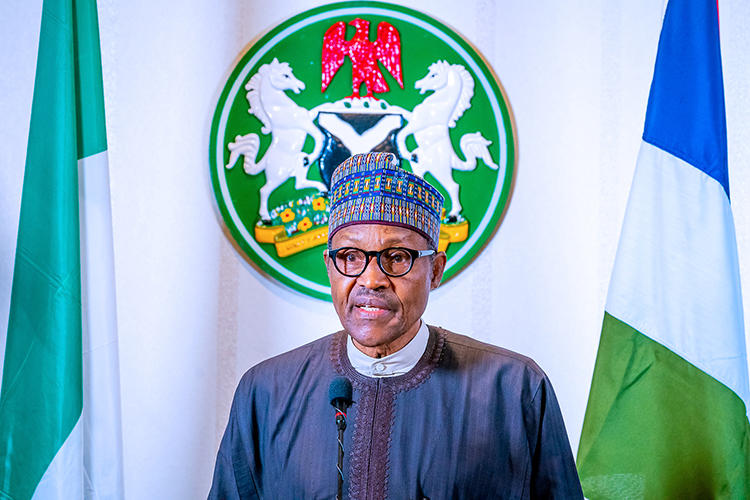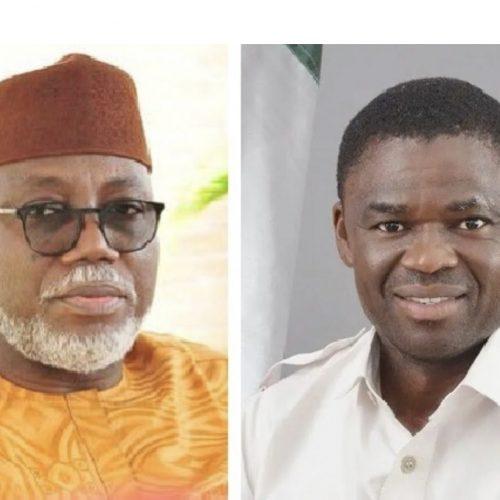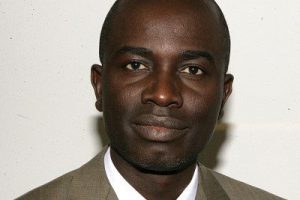This is the title of Nelson Otta’s famous book on the trial and execution of four men who Col. Odumegwu executed on September 22 at the Enugu Township stadium when Federal forces under Major T.Y. Danjuma were lobbying artillery into the very outskirts of Enugu, the capital of breakaway Republic of Biafra. It seemed that Lt.col Hassan Usman Katsina’s boast that the Federal government was embarking on a ‘police action’ to bring Biafra to heel and Major Muritala’s vow to bring Ojukwu back to Lagos in a cage and end rebellion in a jiffy was to be a walk in the park. How wrong they were!
In the beginning, Biafra was not ready for a war of attrition but the crimes of September 1966 against the Ibos were unpardonable. No family in the Biafran enclave escaped the horrendous killings in the North and no government in the East could survive if it did not assuage the bruised feelings for this unpardonable act of choreographed genocide in the North. When the vaunted political ambitions of Ojukwu are factored into the justifiable anger of the Igbos, the stage is set for a fight to the death. The North, flushed from the revenge killings of July 1966 in a bloody reprisal of the January 1966 coup was all for secession.
Suffice to note that the revenge coup of July 1966 was led by Muritala Muhammed who was supported by soldiers of northern extraction in the badly divided army and a majority of the top elites. And the battle cries of the coupists were ‘Araba’— let us secede. After 72 hours without a central government, 32- year-old Yakubu Gowon emerged as the head of state after defeating Murtala in a barrack-like vote at the Ikeja barracks.
The middle-belt soldiers who constituted the rifle power of the army came to their senses albeit temporarily to reject Murtala and chose Yakubu Gowon, an Angas muttering darkly that they could not tolerate Murtala’s bloodthirstiness and sense of Fulani Exceptionalism. It was touch and go and Gowon had to walk a tight-rope before things fell apart in the country later.
‘Militarily, Gowon was my junior’ so said an exasperated Ojukwu after the bloody affairs of July 1966. But the killings in Abeokuta, Ibadan, and the North had altered the configuration of power. The north was in the ascendancy. Most strategic military formations in the country are sited there as a thinly veiled monolithic north will always come into being against the condescending south. The North held the knife and the yam and could do as it pleased once the reluctant acquiescence of Chief Obafemi Awolowo was secured after his release from prison and the Biafran invasion of the Mid-west and the famous battle of Ore. It was a close-call thing. Lagos was in a panic as a mass evacuation of federal documents to Kaduna was in progress in the wake of Biafran advance through the Mid-west under Victor Banjo.
The forces against the disintegration of Nigeria were legion. Apart from vested western interests, the January coupists who escaped northern revenge were dead against Ojukwu’s idea before the mass killings in the north. Kaduna Nzeogwu and Emmanuel Ifeajuna were dead against it and they made no secret of their opposition. In Biafra itself, many saw an unwinnable war and they told Ojukwu so to his face. But the September and October killings of Igbos in the North strengthened Ojukwu’s hands.
Pogrom entered Nigeria’s political lexicon. Mass hysteria in the East was uncontrolled and justifiable cries of vengeance and outright calls for secession could no longer be ignored. But impartial history was of the view that had Ojukwu not been in charge of affairs in the East, the slide into civil war could not have been inevitable. In the charged and polluted atmosphere, Ojukwu and his advisers failed to read between the lines of Chief Awolowo’s lawyerly statement to the effect that “If by some actions and inactions the East is allowed to secede, the federation must be deemed to have come to an end and the West will follow”. The invasion of the Mid-west made the great chief’s double-speak meaningless.
To liken the Mid-west invasion to a blitzkrieg was to be violent with means and language. In the first weeks of the war, Biafra had fared badly; justifying those against secession that the whole bloody affair was a mismatch. The old non-Igbo areas of Cross River were nearly overrun. The people remembered Ibo arrogance and ‘domination’ of the recent past. The Ibo capital was under siege. T.Y. Danjuma who led the assault on Enugu used his captain to major examination papers on capturing Enugu to launch the assault. Meanwhile, the fleeing Okon Ndem was using his awesome talent to broadcast from a makeshift location in uncaptured territory still known as Radio Biafra, Enugu.

The Mid-west invasion was an act of desperation that strengthened the hands of Yakubu Gowon and made the fence-sitting of the Yorubas untenable. They flocked to the Federal banner in droves and paid the ultimate price in repulsing the invasion and perished also in droves at the banks of River Niger under Murtala Mohammed. The Biafran invasion was led by Col. Victor Banjo, a Yoruba who probably survived the July Northern ‘rematch’ because he was in Ikot-Ekpene prison and released by Ojukwu. He had been in prison for his alleged sympathy for the ‘January boys’ and attempt on the life of Aguiyi-Ironsi, his then Commander in chief.
With the assistance of Ibo’s fifth columnist, the ramshackle Biafran invasion was a resounding success until it was stopped in its tracks at Ore by hastily assembled troops. The behavior of Banjo during the campaign was not perplexing given the fact he was against secession. Brigadier David Ejoor, the governor of the Mid-west was on the run. The Commissioner of Police, Joseph Adeola, gave the leader of the invasion his loyalty to save his life.
Wole Soyinka, who described the dithering of Victor Banjo at Ore when ‘the soft underbelly of Lagos as bewildering failed in his attempt to suborn Olusegun Obasanjo when Banjo was knocking at the gates. Obasanjo was then the rear GOC of the 2nd Division based at Ibadan. Jimmy Solanke and Femi Johnson were busy working the phones at Ibadan to no avail. Soyinka spent the next two and half years in detention for his naïve efforts. A much grimmer fate awaited Victor Banjo for the botched invasion.
Biafra had suffered severe reverses at the beginning of the war. Biafran forces were ill-equipped and badly trained. Ojukwu’s boast that no force in black Africa could defeat Biafra was hollow. Christopher Okigbo, Kaduna Nzeogwu, and thousands of Ibos had fallen on the battlefield. The gullible masses had suffered unspeakable deprivations: all attributed to ‘saboteurs’. Scapegoats are needed for the reverses. The botched Mid-west incursion fitted the bill. The hands of a failed leadership would be strengthened if an example was made of manufactured ‘saboteurs’.
The four men executed on 22nd September 1967 at the Enugu stadium had a history of principled opposition to the leadership. Sam Agbam, a career diplomat had debunked M.T. Mbu’s dismissal of Nigerian forces as ineffective and warned darkly against secession. Phillip Alale, a gifted and eloquent trade unionist campaigned against Ojukwu’s course. Ifeajuna, the principal figure in the January 1966 coup responsible for the deaths of Brigadier Maimalari and the prime minister was adamant in his opposition to the prosecution of the war and made his position known to everybody within earshot. And Victor Banjo, a life-long friend of Ojukwu, a One Nigeria man had a different agenda in the Mid-west incursion which was not the dismemberment of the nation.
Victor Banjo refused the traditional last meal of choice for all condemned men. It was inconceivable to the condemned men except for Banjo that they would be executed after a sham trial that was meant to appease Biafran masses. Ben Gbulie, the head of Biafran intelligence and agent provocateur, questioned Ojukwu’s motives for the execution. Suffice to say that only Victor Banjo died as a soldier unbowed till the very end. The years have inexorably raced past but the remains of Banjo should be exhumed and given a decent burial in his homeland.


















